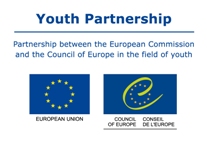Youth Participation in Contemporary European Social Movements
EU-CoE Youth Partnership, 31 october 2012
Cristina Felsher Fominaya’s latest study commissioned by the European Commission in partnership with the Council of Europe looks at the way youth groups engage with politics. Policy makers and academics have long observed -and despaired of -the perceived lack of interest of youth in political participation. While it is true that youth interest in and participation in formal political institutions and processes such as voting have declined over the past decades, along with trust in democratic institutions and leaders, it is only when applying a very narrow definition of political participation that one could conclude that youth have a low participation or interest in politics. If we broaden our definition beyond participation in elections and formal political institutions to include participation in civic and voluntary associations and in protest and social movements, the picture changes considerably. While it is true that youth are less inclined to vote in elections, the cases of the Colour Revolutions and the elections after the 11-M Madrid bombings show that at key moments youth will vote, and will work hard to mobilize the non-voting electorate. This article focuses on youth participation in social movements in contemporary Europe, highlighting some general characteristics over the past decades, as well as examples of key movements in which youth participation has been notable.

